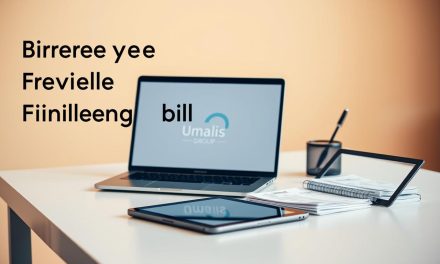Freelancing is now a popular career choice for those wanting flexibility and independence. The global freelance market is growing fast, making it a great time to start your freelance journey1.
I know what it’s like to start a freelance business. Fifteen years ago, I took the leap with a stay-at-home wife and four young kids2. With hard work and planning, I built a successful freelance career.
Today, 35% of the U.S. workforce freelances, earning over $1 trillion annually3. Whether you’re into IT, design, writing, marketing, or consulting, there’s a high demand for skilled freelancers.
Freelancing lets you choose your projects and clients, offering a great work-life balance. Freelancers are very happy, with job satisfaction rates around 70%3.
To succeed as a freelancer, you need more than just skills. You must understand the business side, network well, and market yourself effectively. I learned the importance of learning, adapting, and building a strong client base2.
This guide will help you navigate the freelance world with confidence. We’ll cover finding your niche, building your brand, setting rates, and finding opportunities. It’s for both seasoned professionals and new graduates starting their freelance careers.
Are you ready to take control of your career and join the successful freelancers? Let’s start this journey together and create a fulfilling freelance future.
Table of Contents
Key Takeaways
- Freelancing offers flexibility, independence, and the chance to show off your skills.
- The global freelance market is booming, with 35% of the U.S. workforce freelancing.
- Freelancers earn over $1 trillion annually, showing the huge potential for success.
- To succeed, you need technical skills, business knowledge, networking, and marketing.
- This guide offers strategies and insights to confidently navigate the freelance world.
Understanding the Freelance Landscape
The freelance world has grown a lot in recent years. More people are choosing the gig economy for its flexibility. This shift towards remote work and digital nomadism makes it key to grasp the freelance scene for those looking to change careers or balance work and life better.
What is Freelancing?
Freelancing means working for many clients on a project-by-project basis, unlike being stuck in one job. It gives freelancers control over their time, work, and earnings. In the U.S., over 50% of the workforce might freelance in the next 5 years, with about 40% already freelancing, totaling 90 million4.
Types of Freelance Work
Freelance jobs cover many areas, like:
- Writing and editing
- Graphic design and illustration
- Web and software development
- Marketing and social media management
- Consulting and project management
Having specific skills is key for freelancers, especially in tech fields like engineering, design, and project management4.
Advantages and Disadvantages
Freelancing has its pluses, such as:
- Flexibility in work hours and location
- Potential for higher earnings, as freelancers can set their own rates4
- Chance to work on different projects and grow skills
- Improved work-life balance and time for personal projects
| Challenge | Description |
|---|---|
| Finding clients | Freelancers must always look for new projects and clients to keep income steady. |
| Competition | The freelance market is competitive, so freelancers need to highlight their unique skills. |
| Financial instability | Freelancers face income ups and downs because of the project-based nature of their work. |
Freelancing success needs entrepreneurial spirit, self-discipline, and multitasking. Good time management and client communication are vital, along with constantly finding and bidding on new projects4.
Despite the hurdles, the freelance world keeps growing. It offers a chance for professionals to control their careers and find a better work-life balance. By understanding freelancing, people can decide if it fits their goals and dreams.
Identifying Your Niche
Finding the right niche is key for freelancers in today’s gig economy. By focusing on a specific area, you can boost your career and even double your income5. This focus helps attract clients who need your services, making it easier to find work6.
Assessing Your Skills
To find your niche, look at your skills, industry experience, background knowledge, certifications, and expertise. Think about your past jobs and industries. Using what you know well is important for a profitable niche5.
Researching Market Demand
It’s vital to check if people need what you offer. Some promising niches include:
- Web 3.0 and Metaverse, with a market size of USD 81.5 billion by 20305
- Alternative medicine in the US, with $21 billion in revenue in 20215
- Finance, attracting top freelancers5
- Education, with growing online learning5
- B2B software, offering big deals5
Freelance niches can be about industries, services, or platforms. You can target specific markets with your skills6. For example, you might work with B2B SaaS companies or focus on Webflow6.
Selecting the Right Niche
Choose a niche that fits your interests and skills. This makes your work less stressful and more enjoyable5. New freelancers should try different niches before settling on the best one5.
The author of a successful freelance business stresses the importance of finding high-quality clients and making consistent sales. This is done by carefully analyzing clients to find specific niche markets in the creative industry7.
Being an expert in a niche helps you get found by clients and get referrals6. Sharing your work and knowledge in your niche is key to growing your business6.
| Niche Market | Examples |
|---|---|
| Design | Icon design, liquor branding |
| Development | Web development for fitness businesses |
| Photography | Food photography |
| Copywriting | B2C eCommerce copywriting |
Building Your Freelance Brand
In today’s competitive freelance world, having a strong personal brand is key. It helps attract clients and achieve success. Your brand identity shows off your unique skills and value. By creating a memorable brand and strong online presence, you can show your worth to clients and stand out.
Creating a Professional Portfolio
A well-made digital portfolio is crucial for your brand. It lets you show your best work and skills to potential clients. Sites like Upwork and Behance are great for creating portfolios that showcase your abilities.
When making your portfolio, focus on a variety of projects that fit your niche. Use high-quality images and client testimonials to make it impactful.
Developing an Online Presence
In today’s digital age, having a strong online presence is vital. Social media, especially LinkedIn, is great for connecting with clients and networking. Make sure your LinkedIn profile is professional, including a good headshot and a compelling summary.
Engage in industry groups and share valuable content to show your expertise. Also, consider a personal website or blog to share your work and attract more visitors.
With over 62.3 percent of the world’s population on social media, using these platforms is crucial for your brand8.
Crafting a Memorable Brand Identity
Your brand identity is more than just your logo. It’s how clients see you and your services. Being consistent in your branding is important. Use the same colors, fonts, and messaging everywhere.
This consistency makes your brand recognizable and memorable. Professional photography and consistent colors and fonts help create a cohesive brand9.
Having a unique value proposition is also key. What makes you different from other freelancers? Clearly share your value to attract the right clients and build trust. A strong brand that shows expertise and style boosts client confidence9.
| Branding Element | Importance |
|---|---|
| Professional Portfolio | Showcases skills, expertise, and past work to attract clients |
| Online Presence | Connects with potential clients, networks with professionals, and establishes thought leadership |
| Brand Consistency | Creates a recognizable and memorable brand image across all platforms |
| Value Proposition | Communicates unique benefits and sets freelancer apart from competitors |
By focusing on creating a professional portfolio, developing a strong online presence, and crafting a memorable brand identity, you can build your freelance brand. This attracts high-quality clients. Remember, personal branding is a long-term investment that requires patience and dedication, but the rewards are worth it9.
« Your personal brand is what people say about you when you’re not in the room. » – Jeff Bezos
Setting Your Rates and Pricing
As a freelancer, setting the right rates is key to success. It’s important to look at what others charge in your field10. Sites like Glassdoor or PayScale can give you a good idea of what to expect11.
Think about your skills, experience, and what you bring to clients10. If you’re an expert or have a lot of experience, you can charge more. Also, remember to include your business costs, like software and taxes1011.
Factors Influencing Your Rates
Several things can affect your rates, including:
- Education level and portfolio
- Tools and programs needed for the project
- Effort required to complete the work
- Preferred payment method in your industry11
Talking to other freelancers can help you set fair rates11. Also, think about the benefits of a project, not just the rate11.
Pricing Strategies for Freelancers
Freelancers have many payment options, like hourly or project rates10. To figure out your hourly rate, divide your desired salary by 52, then by 4011.
| Pricing Strategy | Description |
|---|---|
| Hourly Rate | Charging clients based on the number of hours worked |
| Project Rate | Charging a flat fee for the entire project |
| Value-Based Pricing | Setting rates based on the value provided to the client |
Negotiating with Clients
Negotiation skills are crucial for freelancers11. Be ready to explain why your rates are fair, based on your skills and experience11. Having a contract is important to protect your rates and work scope11.
Remember, your rates should reflect your expertise and the quality of your work. Don’t undersell yourself, as it can undermine client confidence.
As you grow, adjust your rates to match your new skills10. Stay competitive by keeping up with market trends and industry standards.
Finding Freelance Opportunities
As a freelancer, finding the right opportunities is key. Today, there are many ways to find freelance work. You can use popular sites like Upwork, which has 3.42 million active buyers12, or check out niche job boards and networking events.
Utilizing Freelance Job Platforms
Freelance job platforms have changed how freelancers meet clients. Upwork, a top site, offers jobs in web development, graphic design, and more13. It charges a commission fee starting at 20% for the first $50012.
Toptal claims to have the top 3% of freelancers13. It only accepts the best after a screening process12. Fiverr has grown from five-dollar gigs to letting freelancers set their prices13. With 3.42 million buyers, it’s a big chance for freelancers to find work12.
Networking for Success
Networking is crucial for freelancers. Going to industry events, joining online groups, and using social media can help. LinkedIn is great for B2B service providers, especially if your profile is complete14.
Building relationships with other freelancers can lead to referrals and collaborations. A strong network and quality work can bring in more opportunities.
Leveraging Social Media
Social media is key for freelancers to promote their work and connect with clients. Sites like Instagram, Twitter, and Facebook are good for showing your portfolio and sharing insights.
For creative types, Behance and Dribbble offer exposure and networking13. Being active on social media and sharing valuable content can attract clients and make you an expert.
| Platform | Key Features | Fees |
|---|---|---|
| Upwork | Wide range of job opportunities | Sliding scale commission fee starting from 20% for the first bill of $500 |
| Fiverr | Freelancers set their own prices and packages | 3.42 million active buyers |
| Freelancer.com | Contests and fixed projects | 10% fee on total earnings |
With 73% of C-Suite leaders using freelancers, and 78% of industry leaders relying on them, demand is up14. By using job platforms, networking, and social media, freelancers can grab these chances and thrive.
Creating Winning Proposals

In the world of freelancing, where almost one-third of Americans contribute $1.2 trillion to the economy15, making a great proposal is key. With 250 applications for every job opening16, your proposal is your chance to shine. It helps you make a good first impression and gain trust with clients.
Key Elements of a Proposal
A good freelance proposal has several important parts. Start with an introduction that shows you understand the project. Clearly state what you will do and when you will do it16.
Show off your skills and experience with examples and testimonials. Give a detailed plan and timeline, so the client knows what to expect16. Talk about how you will be paid, like by the hour or a fixed price17.
Personalizing Your Approach
Make your proposal personal. Tailor it to each client’s needs and goals. Show you know their industry and challenges, and how you can help16.
Include case studies to prove your success with similar clients17. This builds trust and can help you win the project.
Common Mistakes to Avoid
To make a winning proposal, avoid common mistakes. Don’t use generic templates that don’t fit the client’s needs. Instead, write a custom, clear proposal that shows your value17.
Be honest about what you can do and when. Set clear expectations from the start.
| Do | Don’t |
|---|---|
| Personalize your proposal | Use generic templates |
| Clearly define scope and deliverables | Make unrealistic promises |
| Showcase relevant experience | Neglect to follow up |
| Include a clear call to action | Overwhelm with unnecessary details |
Always include a clear call to action. This guides the client on what to do next. Following up after submitting your proposal shows you’re proactive and interested17.
By making personalized, persuasive proposals, you can stand out in the freelance world. This way, you can win more projects.
Managing Your Time Effectively
As a freelancer, learning to manage your time well is key to success. Freelancing offers freedom but also requires smart planning to stay productive. In 2020 and 2021, 36% of the U.S. workforce freelanced full-time, adding $1.3 trillion to the economy’s earnings in 202118. With more people thinking about freelancing, good time management is more important than ever.
Developing a Daily Routine
Creating a daily routine is crucial for freelancers. Time blocking is a great way to schedule tasks for the day18. Plan your week ahead and tackle the most important task first to make the most of your time19. Try the Pomodoro Technique, working in 25-minute bursts with 5-minute breaks, to stay focused and avoid burnout19.
Tools for Time Management
Time tracking tools like Toggl, Harvest, Harlow, and Indy help you see how much time tasks take18. They offer insights into your work habits and where you can improve20. Project management tools like Asana, Trello, Harlow, and ClickUp keep you organized and on track with deadlines18. They help break down big projects into smaller tasks, reducing stress and boosting productivity20.
Balancing Multiple Projects
Freelancers often work on many projects at once. To keep a good work-life balance, prioritize tasks, set realistic goals, and talk openly with clients. Use the Eisenhower Matrix to sort tasks by urgency and importance20. Learn to say « no » to too much and focus on a few key clients to manage your workload better20.
By using these time management tips and tools, you can improve your workflow, increase productivity, and enjoy a better freelance career. Remember, managing your time well is a continuous effort that needs discipline, flexibility, and a drive to always get better.
Legal Considerations for Freelancers

The freelance world is booming, with 42 million people working on their own21. It’s key for freelancers to get the legal side of their work. Contracts, taxes, and intellectual property can seem tough, but knowing your stuff can keep you safe and your business thriving.
Understanding Contracts and Agreements
Getting clear, detailed contracts for every job is a must for freelancers. A good contract should cover what you’ll do, what you’ll deliver, how you’ll get paid, and who owns what. This avoids confusion and sets a solid base for working with clients. With more people choosing freelance over traditional jobs22, having strong contracts is crucial.
When making your contracts, remember to include:
- What you’ll do and what you’ll deliver
- How and when you’ll get paid
- Who owns what
- Agreements to keep things confidential
- Rules for ending the contract
Navigating Taxes as a Freelancer
As someone working for yourself, you must handle your taxes. This means tracking your money, making tax payments, and filing your taxes each year. Freelancers don’t get benefits like regular jobs21, so you need to plan for extra costs.
Here are some tips to make tax time easier:
- Keep good records of your money and expenses
- Save some of your income for taxes
- Get help from a tax expert to make sure you’re following the rules
- Look for tax breaks and credits you can use
Protecting Your Intellectual Property
Your ideas and creations are your most valuable things as a freelancer. You need to protect your copyrights, trademarks, and secrets. This means registering your work, using agreements, and keeping things private with clients.
Disputes over ideas could happen, so make sure your contracts cover IP rights22.
Knowing the legal side of freelancing helps build a strong business. Protecting yourself legally means you can focus on doing great work for your clients.
| Legal Consideration | Key Actions |
|---|---|
| Contracts and Agreements | Use clear, comprehensive contracts outlining project scope, payment terms, and IP rights |
| Taxes | Track income and expenses, make estimated payments, and file annual tax return |
| Intellectual Property | Register copyrights and trademarks, use licensing agreements, implement confidentiality measures |
Continuing Your Professional Development
As a freelancer, growing personally and professionally is key for success23. Keeping your skills sharp and staying current with trends can make you stand out2324. By focusing on both required and optional learning, you can stay ahead in your field24.
Skill Enhancement and Learning
Successful freelancers always look to improve themselves23. While classes can be expensive, there are many affordable ways to learn25. Sites like Udemy and Coursera offer a variety of courses23.
Reading books and listening to podcasts can also give you valuable insights25. Finding a learning method that fits your schedule is important24.
Joining Freelance Communities
Networking is key for ongoing learning and growth25. Freelance communities and groups let you connect and share knowledge23. They can open doors to new opportunities and advice23.
By joining online forums and local meetups, you can stay updated on industry trends23. Being active in these groups helps you build your reputation and contribute to the community.
Seeking Mentorship Opportunities
Finding a mentor can greatly speed up your growth23. A mentor can offer guidance and support as you build your freelance career. Look for mentors in your network or through professional groups.
Building a mentorship relationship takes commitment and clear communication23. Be open to feedback and questions. Remember, mentorship is a two-way street, and you can also share your experiences.
FAQ
What are the benefits of freelancing compared to traditional employment?
Freelancing offers many perks. You get to set your own schedule and work from anywhere. This means you can earn more and choose projects that interest you.
How do I determine my niche as a freelance professional?
To find your niche, look at your skills and past work. Research what’s in demand. Getting more training can help you specialize.
What steps can I take to build a strong brand as a freelancer?
Start by making a professional portfolio. Use platforms like LinkedIn and create a website. Your brand should show what makes you unique.
How should I set my rates as a freelance professional?
Consider your skills, experience, and what others charge. Don’t sell yourself short. Learn to negotiate to get fair pay.
Where can I find freelance job opportunities?
Use job platforms like Upwork. Network online and offline. Social media, especially LinkedIn, is great for finding clients.
What are the key elements of a winning freelance proposal?
A good proposal is personal, detailed, and priced right. Show you understand the client’s needs. Highlight your skills and avoid generic mistakes.
How can I effectively manage my time as a freelancer?
Good time management is key. Create a daily routine and use tools to stay organized. Learn to handle multiple projects by prioritizing and communicating well.
What legal considerations should I be aware of as a freelancer?
Know the legal side of freelancing. Use clear contracts and understand your taxes. Protect your work with proper licensing.
How can I continue my professional development as a freelancer?
Keep learning to stay ahead. Take courses and join communities. Find a mentor to guide you.
Source Links
- What Successful Freelancers Do Differently – https://hbr.org/2021/10/what-successful-freelancers-do-differently
- How I Started A Successful Freelance Business – https://www.linkedin.com/pulse/how-i-started-successful-freelance-business-mat-casner
- What Is The Key To Success In Freelancing? – https://www.theautonomousfreelancer.com/blog/key-to-success-in-freelancing
- Freelancing in Tech: Setting Yourself Up for Success after a Layoff – https://blog.get-merit.com/freelancing-in-tech-setting-yourself-up-for-success-after-a-layoff/
- The Ultimate Guide to Choosing a Freelance Niche – Freelance Magic – https://freelancemagic.co/2024/11/14/choosing-a-freelance-niche/
- How to Find Your Niche as a Freelancer — Wethos – https://www.wethos.co/blog/how-to-find-your-freelance-niche
- How to Find Your Niche as a Freelancer: Questions to Consider – https://bettermarketing.pub/finding-your-niche-questions-to-consider-d513c54a437e
- Building Your Freelance Brand: Strategies for Effective Self-Promotion – https://www.clearvoice.com/resources/building-your-freelance-brand/
- Why Freelancers Need a Personal Brand and How to Create One – https://www.linkedin.com/pulse/why-freelancers-need-personal-brand-how-create-one-diana-kelly-levey
- How to Set Your Rates as a Freelancer — Studio Seaside – https://www.studioseaside.com/blog/how-to-set-your-rates-as-a-freelancer
- How to Set Your Freelance Rate | FlexJobs – https://www.flexjobs.com/blog/post/set-freelance-rate/
- 25 best freelance websites to find work in 2024 – https://www.hostinger.com/tutorials/best-freelance-websites
- 29 best freelance websites to find work in 2024 | Webflow Blog – https://webflow.com/blog/freelance-websites
- How to Find Freelance Work: 8+ Strategies | FlexJobs – https://www.flexjobs.com/blog/post/how-to-find-a-freelance-job-v2/
- How to Write a Killer Freelance Proposal in 2024 – https://www.pandadoc.com/blog/how-to-write-a-winning-proposal-for-freelance-work/
- How to Write a Winning Freelance Proposal: Tips, Templates & Examples – https://www.getcone.io/blog/write-a-winning-freelancer-proposal
- Crafting Your Winning Freelance Proposal: A Comprehensive Guide | Pollen – https://www.runpollen.com/articles/crafting-your-winning-freelance-proposal–a-comprehensive-guide
- 7 Tips & Tools to Manage Your Time as a Freelancer | Clockwise – https://www.getclockwise.com/blog/freelance-time-management
- 16 Time-Management Tips for Freelancers — Curious Refuge – https://curiousrefuge.com/blog/16-time-management-tips-for-freelancers
- 11 Time Management Tips for Freelancers – https://www.linkedin.com/pulse/11-time-management-tips-freelancers-john-rampton-1c
- Freelance Part 1: Pros and Cons of Hiring Independent Contractors – https://www.revolution.law/freelance-part-1-pros-and-cons-of-hiring-independent-contractors/
- Legal Considerations Every Employer Should Know When Working with Freelancers | Wolferstans Solicitors Plymouth – https://wolferstans.com/knowledge/legal-considerations-employers-should-know-when-working-with-freelancers/
- Steps Freelancers Should Take for Personal and Professional Growth | The eLearning Blog – https://elearning.company/blog/steps-freelancers-should-take-for-personal-and-professional-growth/
- How would you deal with continuous professional development? – https://forum.gettingthingsdone.com/threads/how-would-you-deal-with-continuous-professional-development.17972/
- Continued learning as a freelancer: this is how you do it – https://www.brightplus.be/en/blog/continued-learning-as-a-freelancer-this-is-how-you-do-it





